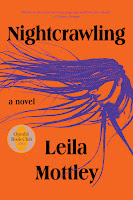By the time of his passing in 2014, Gabriel García Márquez had already secured his place among the literary greats. Works like One Hundred Years of Solitude and Love in the Time of Cholera were celebrated as masterpieces, and the Colombian author enjoyed his later years as a revered figure in global literature. Toward the end of his life, his publisher hinted at a new novel in the works. However, news of Márquez’s battle with dementia cast doubt on whether this final piece would ever see the light of day. Now, a decade after his death, Until August has been released posthumously, offering readers a final glimpse into the mind of the legendary storyteller.
On the surface, Ana Magdalena Bach’s life appears perfect. She has been happily married for over twenty years, with a loving husband and children waiting for her at home. So why does she perform this peculiar ritual each August? Every year, she boards a ferry to a remote Caribbean island where her mother is buried, spending the night in quiet contemplation—and in the company of a stranger. She knows how the evening will end. It is always the same. She’ll leave the bar with one of the men, lose herself in a fleeting night of passion, and then return home the next day as if nothing has happened.
But with each passing year, Ana finds herself drifting further into the shadowed corners of her desires and anxieties, forced to confront the fragile balance of the life she has constructed. In this annual act, she begins peeling back the layers of her heart, wrestling with the haunting realization of what might lie beneath the perfect image she presents to the world.
I question whether Until August is a novel Gabriel García Márquez would have wanted the world to see. In the afterword, his longtime editor acknowledges the author’s frustration with the book’s progress, feeling the limitations of his diminishing faculties and growing dissatisfied with his attempts to evoke the magic that defines his earlier works. Yet, even within this unfinished narrative, Márquez's genius flickers, especially in his ability to pull profound emotional weight from seemingly simple, everyday moments. Ana’s character, burdened by guilt and haunted by the life she’s chosen, reflects the poignant image of a self gradually slipping away. Her portrayal feels hauntingly reminiscent of what Márquez himself might have experienced in those final years—a struggle to hold on to an identity that time and circumstance slowly erode.
Despite these evocative moments, Until August feels incomplete, lacking the lush vibrancy and depth that characterize Márquez's best work. While it serves as a fascinating, intensely personal window into the mind of a literary legend, it’s also a sobering reminder of his decline—a book that, while intriguing, underscores the frailty of even the most significant artists in their final days.
For more information, visit Amazon and Goodreads.
(2024, 82)





















